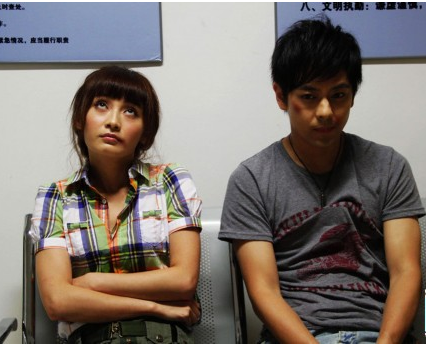
IN 2006, when she was seven months pregnant, Kim Lee was kicked so hard in the abdomen by her husband that she needed hospital treatment. Such domestic violence, though shocking, is not uncommon in China. Around a quarter of Chinese women have experienced domestic abuse, according to the All China Women's Federation (ACWF), a state-controlled NGO, but experts say the real figure is probably much higher. Concerns about losing family "face" mean many incidents go unreported, and few offenders are ever punished.
2006年,懷孕7個(gè)月的吉姆•李(Kim•Lee)被她的丈夫一腳踢中小腹。這一腳太重了,讓她不得不去醫(yī)院治療。這樣的家暴雖說令人震驚,但在中國并不少見。根據(jù)政府控制的非政府組織中華全國婦女聯(lián)合會(huì)(全國婦聯(lián))(All China Women's Federation (ACWF))統(tǒng)計(jì),大約四分之一的中國婦女有過遭受家暴的經(jīng)歷;但專家認(rèn)為實(shí)際數(shù)字可能遠(yuǎn)高于此。對(duì)"家丑外揚(yáng)"的顧慮遮掩了許多此類事件,施暴者很少受到懲處。
What makes Ms Lee different is that she is a white American. Her husband is Li Yang, the celebrity founder of Crazy English, a wildly popular English-language training institute, which encourages students to learn English by shouting it at the top of their voices.
李女士是一位美國白人,這讓她與一般中國婦女不同。她的丈夫是李陽,他因創(chuàng)辦"瘋狂英語"[注2]成名;而"瘋狂英語"是深受大眾喜愛的英語學(xué)習(xí)集訓(xùn)營,該集訓(xùn)營鼓勵(lì)學(xué)生高聲誦讀英語以達(dá)到學(xué)習(xí)目的。
The few people Ms Lee confided in, including her Chinese sister-in-law, told her to stop provoking her husband. When she complained to the police, after suffering concussion and bruised ribs, they told her to "relax and go home". Frustrated, she turned to the internet, posting photos on a Chinese microblog last August. One showed a lump the size of a golf ball protruding from her forehead. Another showed a bloody ear. The photos caused a sensation. Hundreds of thousands of comments were published about them on microblogs. Since then, many more victims of domestic violence have come forward, and the issue has been reported and discussed more widely in Chinese media.
李女士信賴的少數(shù)幾個(gè)人(包括她的中國小姑)告訴她別再去惹自己的丈夫。她在遭受腦震蕩與肋部瘀傷之后向警方投訴,但警察讓她"放松一下,回家吧"。深感沮喪的她轉(zhuǎn)投互聯(lián)網(wǎng),去年8月在一家中國微博上貼出了她的照片。其中一幅照片顯示了她額頭上高爾夫球大小的一個(gè)鼓包,另一幅是她流血的耳朵。照片引起了轟動(dòng)。微博上對(duì)此的跟帖評(píng)論數(shù)以十萬計(jì)。從那時(shí)起許多其他家暴受害者也紛紛站了出來,中國媒體就這一問題進(jìn)行了更廣泛的報(bào)道與討論。
While a 2005 law vaguely states that domestic violence against women is prohibited, there is no national provision for dealing with offenders. This year, the creation of such mechanisms was put on the legislative agenda of China's parliament, the National People's Congress. It marks the fifth time the ACWF has submitted such a proposal. Julie Broussard, China programme manager at UN Women, part of the United Nations, says she is optimistic that it could pass this time.
2005年的一部法律含糊地禁止對(duì)婦女的家暴,但沒有全國通行的法律條款懲處施暴者。今年的中國議會(huì)——全國人大的立法議事議程中包括建立這樣的機(jī)制。值得注意的是,這是全國婦聯(lián)第五次提交這一議案。聯(lián)合國下屬組織——聯(lián)合國婦女中國區(qū)經(jīng)理朱麗葉•布魯薩德(China programme manager at UN Women Julie Broussard)說,她對(duì)本屆人大通過這一議案持樂觀態(tài)度。
After months of waiting, Ms Lee has been granted a civil protection order forbidding her husband to come within 200 metres of her. On August 10th she attended divorce proceedings in Beijing for the third time, after Mr Li refused to co-operate at previous hearings. A group of Chinese women, made up with fake bruises, came to the court with 1,200 signatures expressing support for Ms Lee.
經(jīng)過幾個(gè)月的等待之后,法庭為李女士頒布了一項(xiàng)公民保護(hù)令,禁止她的丈夫在她周圍200米內(nèi)出現(xiàn)。在李陽在以前的庭審中拒絕合作以后,8月10日李女士在北京第三次出席離婚庭審。一群臉上涂抹成青腫受傷樣子的中國婦女來到法庭,她們征集了1200個(gè)支持李女士的簽名。
Mr Li has apologised for his actions but last week he told Chinese reporters that what is called domestic violence could just be a difference between cultures. Ms Lee has claimed custody of their three young children and decided to remain in China. She knows she can leave if she wants to. Chinese women, she points out, do not have that option.
李陽曾對(duì)他的行為表達(dá)過歉意,但上周他告訴中國記者,所謂家暴有時(shí)只不過是兩種文化的差異而已。李女士要求行使對(duì)他們的三名幼年孩子的監(jiān)護(hù)權(quán),并決定留在中國。她知道,如果她想離開中國她就可以走。但她指出,中國婦女沒有這樣的選擇












